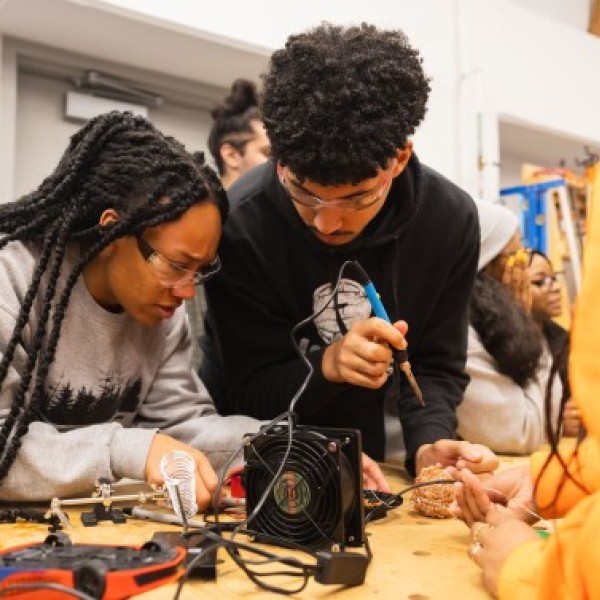In October, 200 kits were sent home with students enrolled in the six Lockport City School District’s elementary schools. The feedback from families was overwhelmingly positive.
“My son really loved preparing the cooking the Three Sisters Soup and cornbread … he wanted to share his soup with everyone,” said Stephanie Wrobel, whose son, Sebastian Wrobel, is a 5th grader at Emmet Belknap Intermediate School. “We’ve made it twice since then and he enjoys having his own cutting board and knife. He offers to help more in the kitchen now.”
“My son really loved preparing the cooking the Three Sisters Soup and cornbread … he wanted to share his soup with everyone. We’ve made it twice since then and he enjoys having his own cutting board and knife. He offers to help more in the kitchen now.”
The meal kits generated enough interest from families within the district that the effort was repeated in November, with another 200 kits going out before Thanksgiving.
For Justin Rogers, CCE Niagara County’s executive director, it was an eye-opening experience to see the take-home meal kits generate a substantial increase in Farm to School participation within the district.
“The take-home meal kits were initially just a response to limitations on in-person events, but by rethinking our program delivery methods we ended up reaching far more families than we had through in-person events,” said Rogers. “This experience has made us more versatile and will help us expand our programming to better serve our community’s needs.”
The success of the meal kit program at LCSD has had a cascading effect, with the North Tonawanda School District’s Food Service Director, Ben Glurich, expressing interest in conducting a similar project in their district. In December 2020, approximately 500 snack kits were sent home with students in coordination with their Curbside Grab & Go Meal service.
“The take-home meal kits have been a great way to connect to remote families, increase awareness of the availability of school meal pick-up programs, and improve the perception of the school lunch program in general.”
“The take-home meal kits have been a great way to connect to remote families, increase awareness of the availability of school meal pick-up programs, and improve the perception of the school lunch program in general,” noted Amanda Henning, CCE Niagara County’s Ag Program Team Leader. “While the COVID-19 pandemic didn’t allow us to stick to our original plan, through partner collaborations and adjusting our program delivery we executed the next best thing.”








